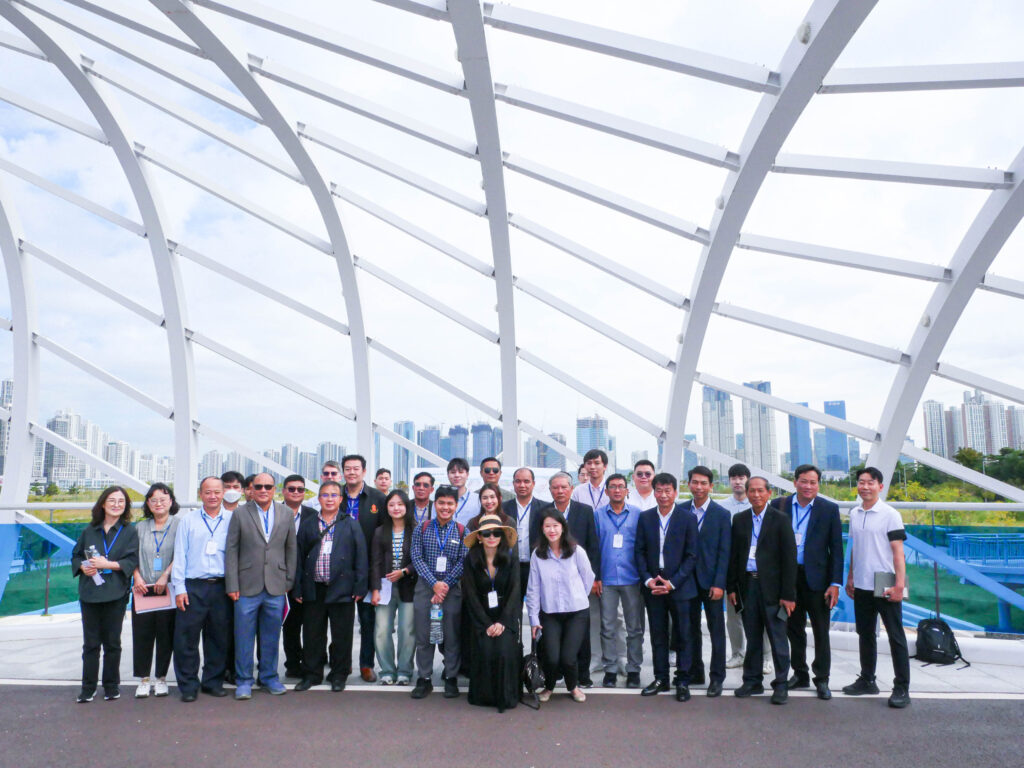Officials from countries in the Lower Mekong (LM) region are taking significant steps to tackle the interconnected challenges of water, energy, and food through a study visit to the Republic of Korea, where they engaged in hands-on learning about water-energy-food (WEF) nexus technologies.
Organized by the Mekong Institute (MI) in partnership with the Republic of Korea’s Ministry of Science and ICT (MSIT), the United Nations Office for South-South Cooperation (UNOSSC), the Science and Technology Policy Institute (STEPI) of Korea, and the Mekong River Commission Secretariat (MRCS), the learning visit was part of a project called “Triangular Cooperation on Sustainable Development in the Lower Mekong Basin based on the WEF Nexus.” It ran from September 23 to 26, 2024, and enabled 19 delegates from Cambodia, Lao PDR, Thailand, and Viet Nam to explore best practices in Daejeon and Incheon. The group included national and local government officials, district governors, administrators, and technical department members, primarily from the ministries of environment and agriculture.
Ms. Jian Wang, Program Manager at MI’s Sustainable Energy and Environment (SEE) Department, explained that the initiative seeks to enhance stakeholder knowledge in the design, implementation, maintenance, troubleshooting, and replication of WEF-related projects in their respective countries. “With the support of our partners, MI is helping LM countries expand their capacity to handle national WEF projects and install these technologies in new areas such as rural communities,” said Ms. Wang. “Ultimately, addressing WEF challenges through these technologies is aimed at ensuring food security, economic stability, and climate resilience in the region.”
The learning visit focused on key WEF nexus technologies and included seven locations, highlighting advancements in water treatment, early warning systems, Integrated Water Resource Management (IWRM), and desalination. At K-water, participants explored IWRM and flood management systems, which included a guided tour of treatment plants and a presentation on desalination methods. Their journey continued at WI.Plat, a private company involved in Thailand’s national pilot project on water leakage detection systems. Participants then engaged in discussions at the Science and Technology Policy Institute (STEPI) about national policy to support WEF-related initiatives.
They then delved into agriculture-related WEF projects at the Rural Development Administration (RDA), gaining valuable insights from the agency’s international initiatives. The group also learned about technical assistance projects aimed at addressing climate challenges at the Climate Technology Centre and Network (CTCN) and visited UNDRR ONEA-GETI to observe disaster risk reduction plans and climate adaptation strategies. Concluding their site visits, they gained insight into Incheon’s waste management facilities at the Environmental Corporation of Incheon (ECO-I), which included processes for treating waste, filtration, and incineration.
At the end of their itinerary, participants presented their key takeaways and discussed how they could apply the knowledge, tools, and approaches they acquired in their own countries while exploring ways to further strengthen regional cooperation under the WEF nexus framework.








